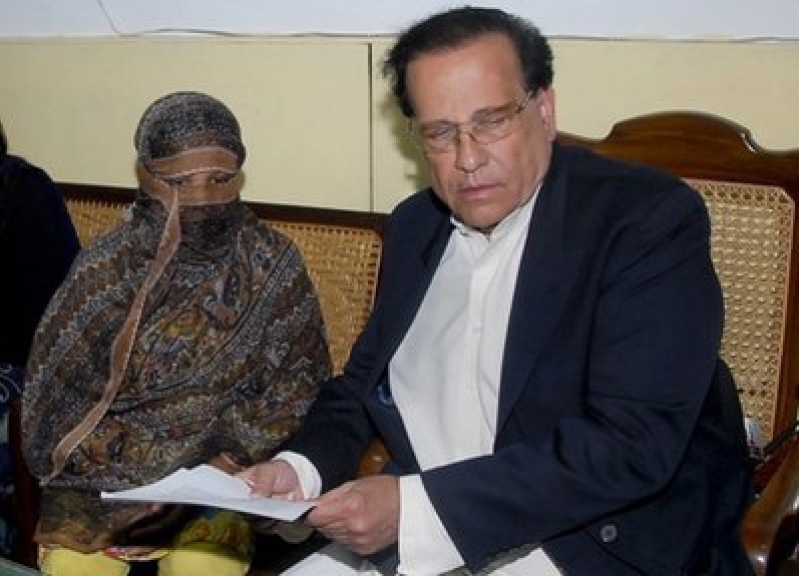
The governor of Pakistan's Punjab province was assassinated Tuesday by his bodyguard.
Salman Taseer was one of the most vocal advocates for Asia Bibi, a Christian mother sentenced to death for alleged blasphemy, and an opponent of the country's blasphemy law.
He was shot dead while walking through an Islamabad market by a bodyguard who opposed the governor's position.
U.S. Secretary of State Hillary Clinton condemned the assassination and called his death a great loss.
"I had the opportunity to meet Governor Taseer in Pakistan and I admired his work to promote tolerance and the education of Pakistan's future generations," she said.
She added that the U.S. is committed to helping the government and people of Pakistan to bring peace and stability to the country.
Just last month, Taseer denounced Pakistan's blasphemy law.
"If you want my personal opinion, I don’t like this law at all," he said to Newsline magazine. "The important thing to remember is that this is a man-made law, not a God-made one."
He also expressed outrage toward the incarceration and death sentence of Bibi. He called it "a blatant miscarriage of justice," "cruel" and "inhumane," according to Newsline.
He petitioned to President Asif Ali Zadari for the release of Bibi.
Bibi was incarcerated after she got into a petty argument with fellow field workers in June 2009. She began defending her faith after the Muslim women in the field refused to drink the water she brought because the container was touched by a Christian.
The women tried unsuccessfully to forcefully convert her to Islam. A few days later, dozens of Muslims dragged her away. She was beaten and accused of blasphemy against the Muslim Prophet Muhammad, which she denies.
Bibi has since been imprisoned. She is the first woman to be sentenced to death for blasphemy.
Taseer's support for Bibi's release made him a target for Islamic extremists. According to Warren Throckmorton, who started a petition in the U.S. demanding her release, Taseer had a fatwa - a religious ruling or, in this case, an order to kill - on his head.
Raza Anjum, a city Councillor from the U.K., who is in Pakistan trying to win freedom for Bibi, told Throckmorton that Taseer spoke strongly against religious extremism.
The Punjab governor was "prepared to stand up to them (extremists) to help bring about a progressive and peaceful Pakistan," Anjum told Throckmorton.
"The assassination of Salman Taseer is a huge blow to all those who are working for an enlightened and progressive Pakistan," said Anjum. "His death has left the country in shock at a time when it faces an imminent political crisis."
Prime Minister Yousuf Raza Gilani declared three days of mourning for Taseer. Institutions and schools in Punjab have been ordered to shut down on Wednesday.
Pakistan’s Christian community makes up less than five percent of the country’s population of 175 million people.







